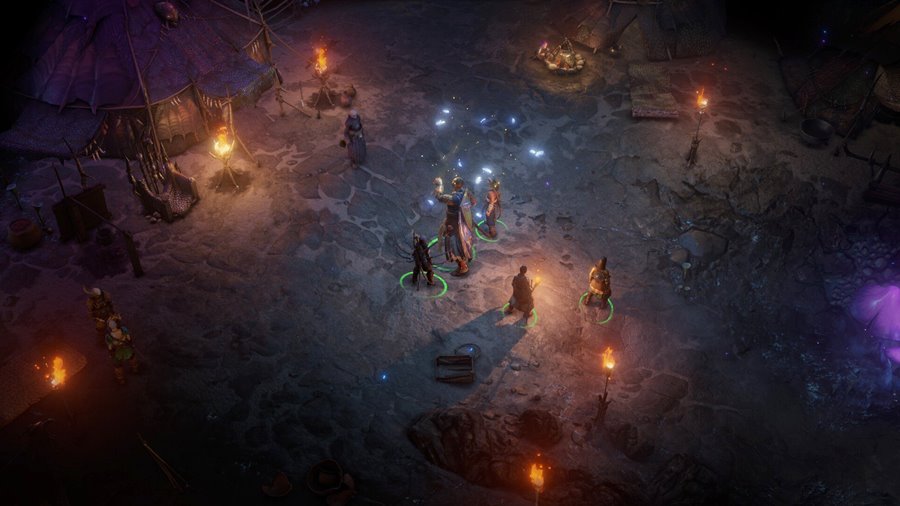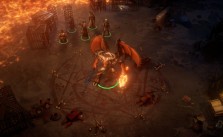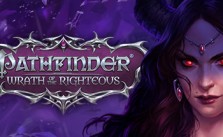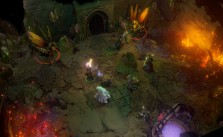10 Tips for Those Starting Pathfinder: Wrath of the Righteous – Enhanced Edition
A hero’s journey doesn’t commence with a single step but rather a leap of faith into a realm of limitless potential. For those diving into the vast world of Pathfinder: Wrath of the Righteous, the road ahead may seem overwhelming. Fear not! as we’ve put together a list of 10 tips to assist you on your way. Let’s begin.
Choose Your Class Wisely
When selecting a class think about your playstyle and the kind of character you’d like to portray. Are you drawn to inflicting heavy damage in combat or providing support to others? Do you have a penchant for specific magical abilities or prefer physical prowess? Reflecting on your desired character will help you pick a class that aligns with your preferences.
Also, weigh the pros & cons of each class, including any unique abilities or spells they possess. If versatility & utility appeal to you the bard’s diverse capabilities may be a perfect fit. For example, their wide range of abilities allows them to support the party in various ways, making them a valuable asset.
For newcomers, here are some beginner-friendly classes in Pathfinder: Wrath of the Righteous – Enhanced Edition:
- Fighter: These sturdy warriors excel in combat and boast a broad range of weapon and armor choices, making them very adaptable on the battlefield.
- Cleric: As potent spellcasters, clerics provide healing and support while also dealing damage. They have a variety of spells that can help keep the party alive & strong as well as powerful offensive spells.
- Bard: Masters of support and crowd control, bards use spells and abilities to debuff enemies, buff allies, and manipulate the battlefield, making them highly versatile.
- Rogue: Stealthy and cunning, rogues strike from the shadows and navigate the battlefield undetected. Rogues have a range of abilities that allow them to sneak around & deal significant damage from the shadows.
Remember as you advance you can always adapt your play style to better suit the challenges you face.
Lastly, consider class archetypes or prestige classes to further tailor and enhance your character. Archetypes modify your base class abilities to suit your preferred playstyle, while prestige classes grant unique powers beyond your base class. Just make sure you meet any requirements before selecting these options, as they may have certain prerequisites or require you to sacrifice specific abilities in exchange.
Build a Balanced Party
A successful RPG party is diverse & well-rounded. In Wrath of the Righteous, you’ll encounter various challenges requiring different character types. Aim for a mix of damage dealers, tanks, and support characters. Start with a strong melee fighter, ranged attacker, and healer, then add specialists like a rogue or bard for added versatility. This balanced approach will ensure you have the necessary skills & abilities to tackle the myriad of obstacles you’ll face throughout your adventure…
Leverage Party Abilities and Synergy
A winning party capitalizes on each member’s strengths and weaknesses. Pair characters with complementary abilities to maximize their combined potential… If you have a character skilled in damage-over-time abilities, team them up with a character who can apply crowd control or debuffs to enemies allowing the damage-over-time abilities to be even more effective. Similarly, a healer paired with a tank can focus on keeping the party alive while the tank absorbs incoming damage. By understanding the dynamics within your party, you can create a more effective and efficient team, better prepared to face the challenges that lie ahead.
Save Manually
While playing Pathfinder: Wrath of the Righteous, you might be tempted to rely on quicksaves when taking risks and trying new strategies. However, quicksaves are limited and can easily overwrite each other, potentially causing lost progress or missed triggers. To avoid this, make a habit of manually saving your game more frequently rather than relying too much on quicksaves. This practice will give you more save points to fall back on and ensure you don’t lose essential progress. Manual saves can also help prevent issues with triggering certain events or Mythic Path choices, as your save files won’t be constantly overwritten by quicksaves.
Read Books for Bonuses
Throughout your journey you’ll come across various books. Though it may seem daunting, many of these books offer permanent bonuses to your character. While the boosts may not be as significant as feats or powerful equipment, every little advantage helps. Some books grant attack and damage bonuses, morale boosts, or AC improvements. By reading all the books you encounter, you increase your chances of discovering ones that provide valuable benefits.
Adjust Difficulty Level as Needed
Remember that if you find the game too challenging or too easy, you can adjust the difficulty at any point during gameplay. This feature can be especially helpful if you’re struggling with a specific encounter or boss fight.
Explore Different Playstyles and Combat Approaches
Pathfinder: Wrath of the Righteous offers an array of options and abilities for players to experiment with. Don’t feel confined to a specific build or playstyle if it’s not working for you. Instead, try out different strategies and discover what suits you and your party best. If you’re having trouble with a particular enemy or boss, try using different tactics/abilities that you haven’t used before. Or, if you’re feeling stuck in a rut with your character build: consider re-speccing your character and trying out a new set of abilities. Experimentation and exploration are crucial to finding success in this game, so don’t be afraid to try new things!
Utilize Animal Companions
Animal companions are creatures that join your party, and they can act as mounts. Only certain classes can acquire animal companions, which can be used for transportation, offering a faster way to travel than on foot. Keep in mind that you can only mount animal companions at least one size larger than you, so smaller races have a wider variety of mount options. Animal companions also provide unique attacks during combat, and certain classes, like the Cavalier, can execute special attacks when mounted. Don’t overlook the benefits of animal companions when creating your character and throughout gameplay.
Control Time to Enhance Gameplay
Did you know that you can adjust the speed of combat in Pathfinder: Wrath of the Righteous? This feature is useful for various reasons. In addition to the pause function, which lets you strategize, you can also slow down combat to better understand what’s happening. This can be especially helpful for learning the game mechanics, particularly if you’re a beginner. By slowing down combat, you can more easily see dice rolls and passive abilities as they appear in real-time on the bottom right of the screen. This feature is useful for developing a better sense of timing and strategy.
Mind Your Mythic Paths
Mythic Paths are a character progression system separate from the standard leveling system. Your character will reach milestones throughout the story and eventually ascend into a divine being. There are 10 different types of divine beings in the game, corresponding to 10 different Mythic Paths. To unlock a Mythic Path, you must progress through the story and defeat specific enemies in main quests.
Your choice of Mythic Path will affect the loyalty of certain armies in Crusade Mode and the behavior of your companions in the story. It may even influence the outcome of later parts of the game. Be sure to consider your Mythic Path carefully, as it can have significant consequences for your character’s development and the game’s course.





